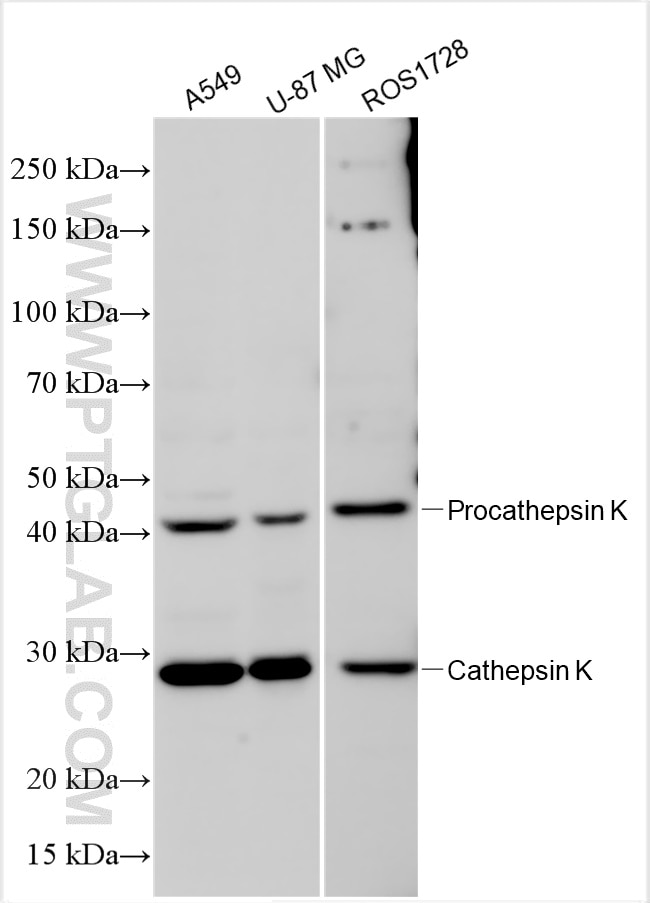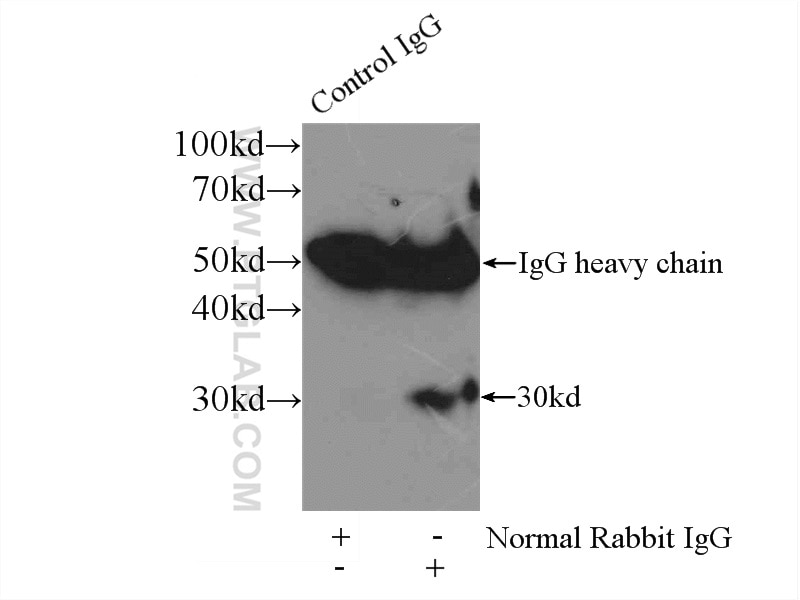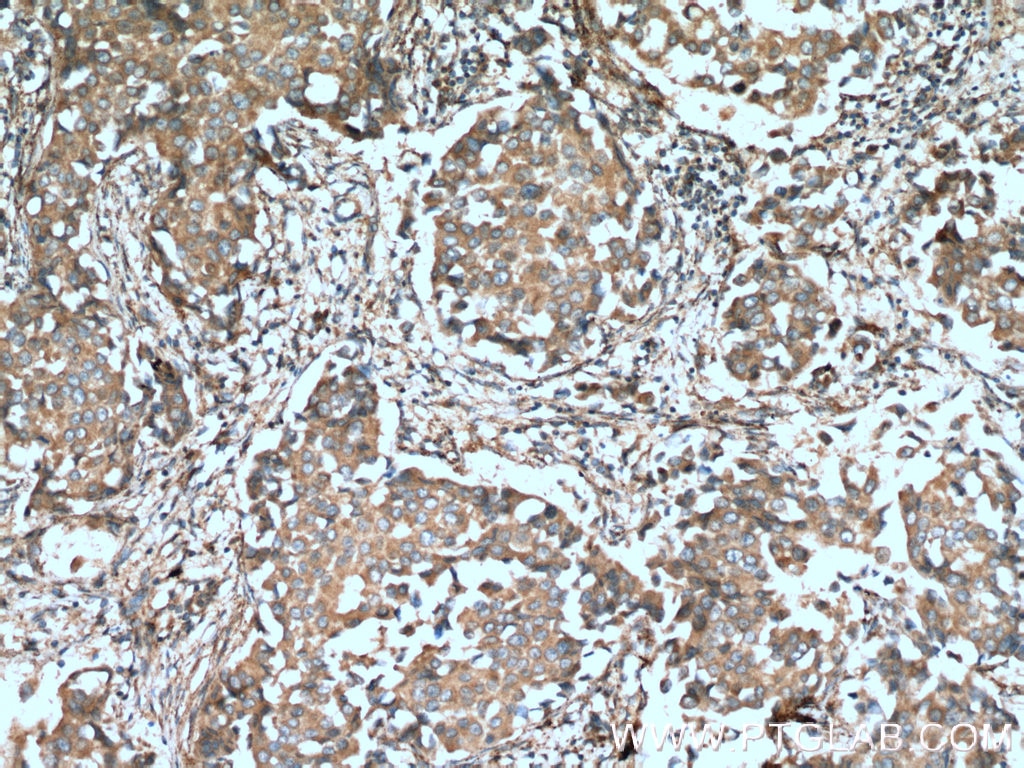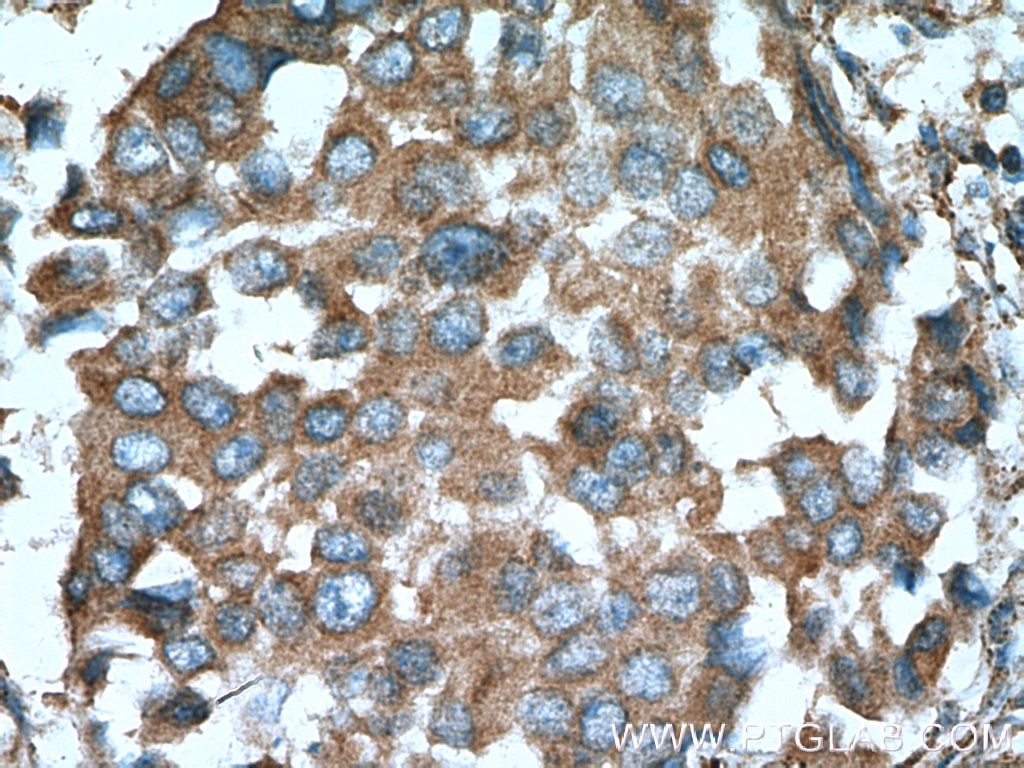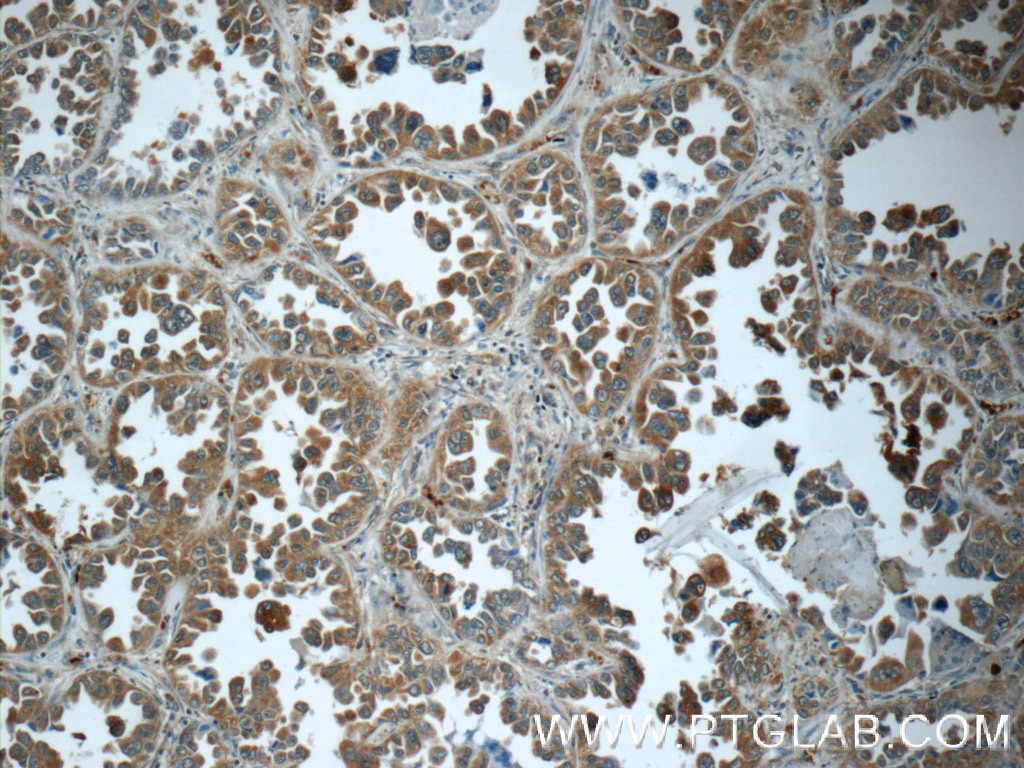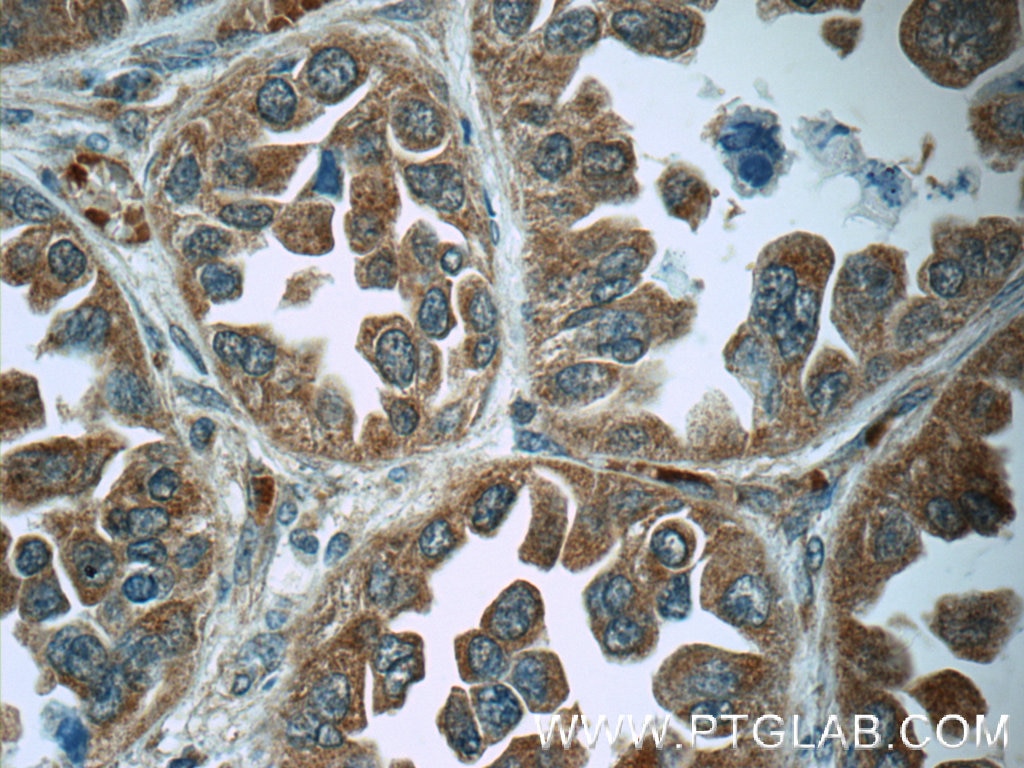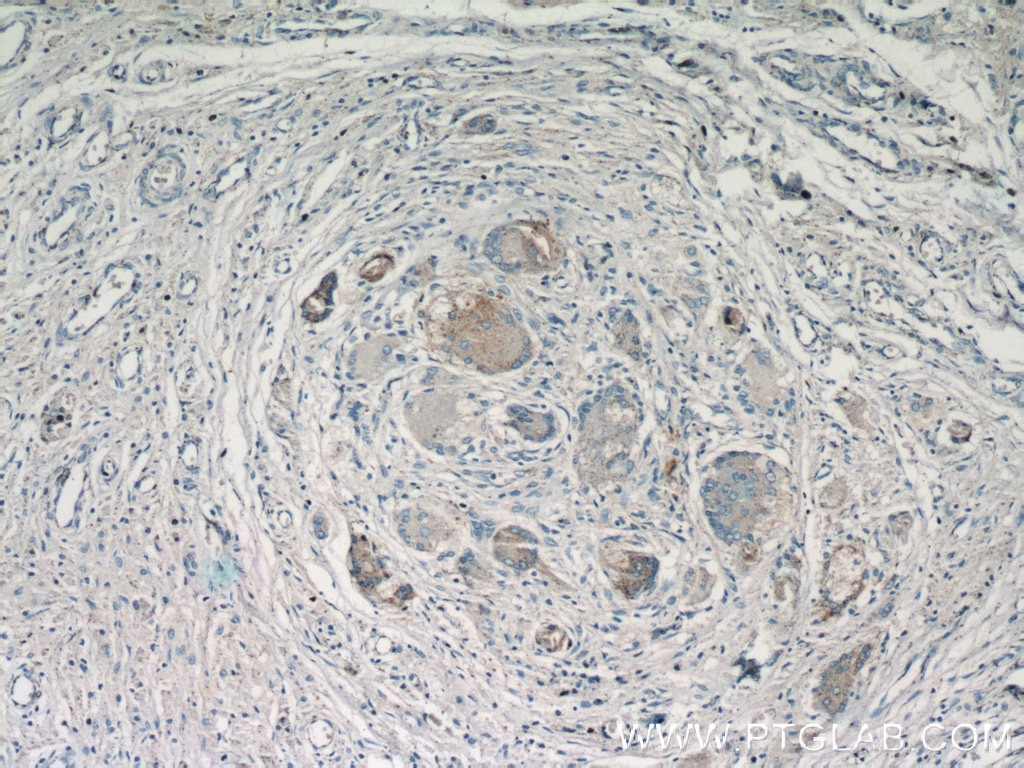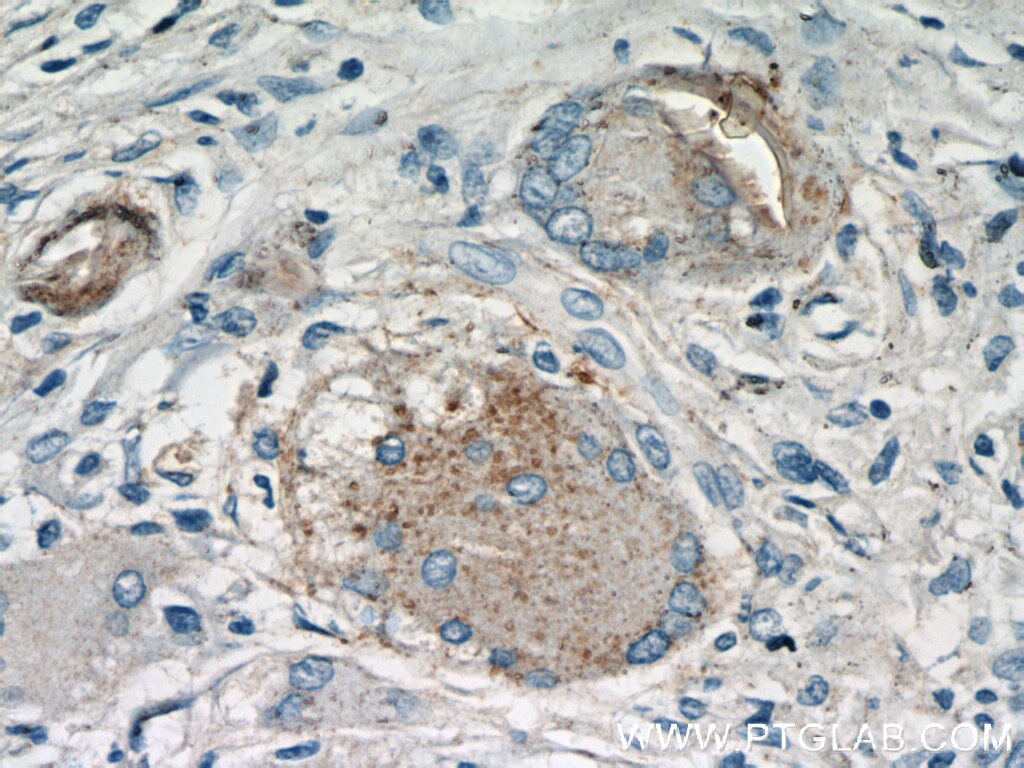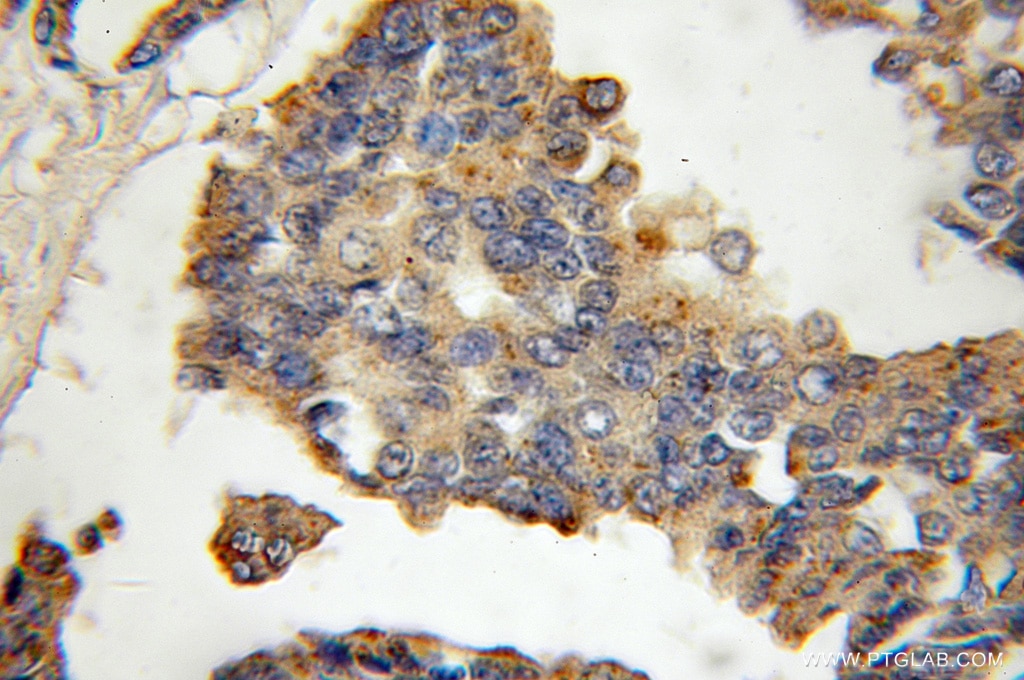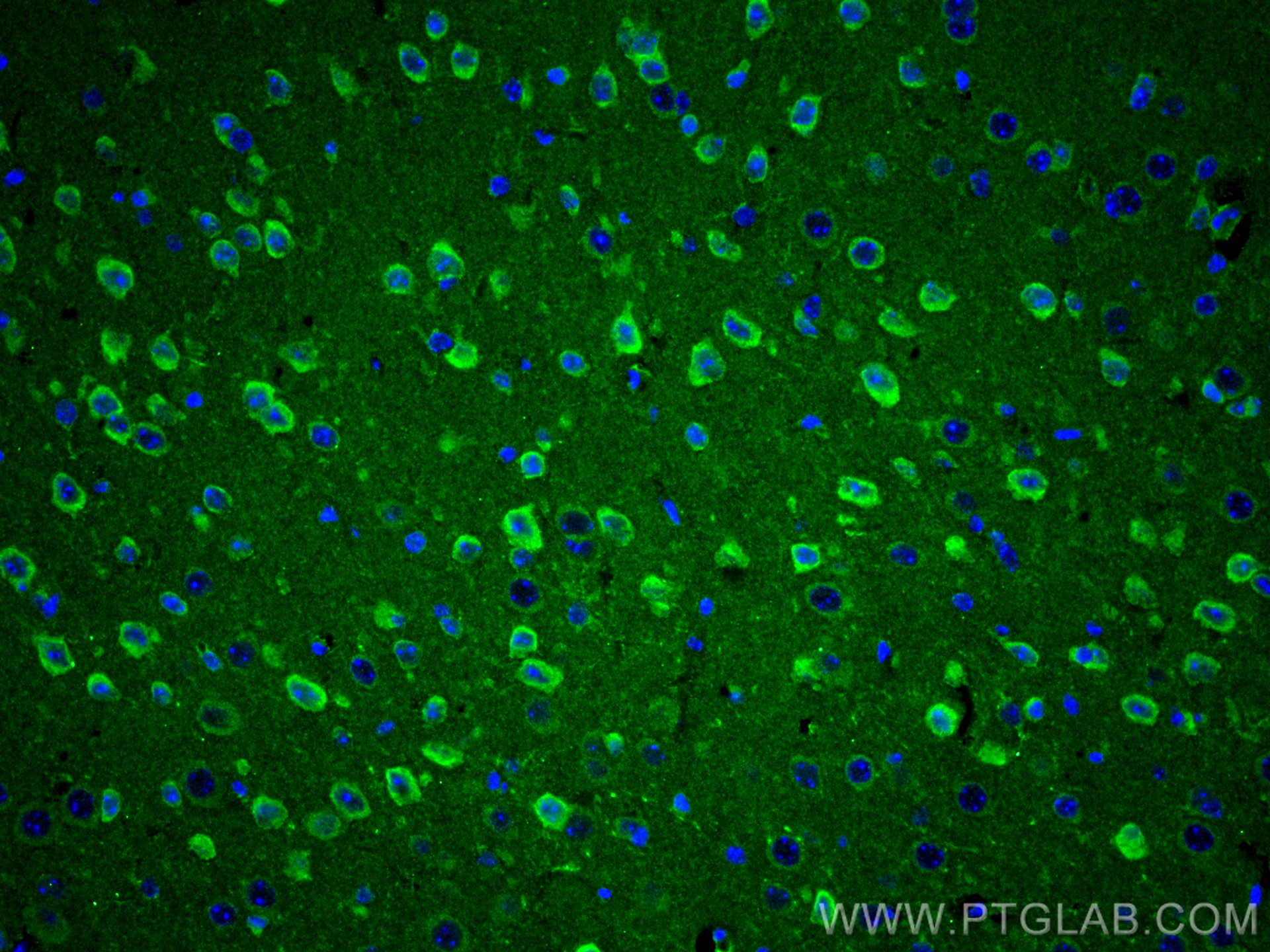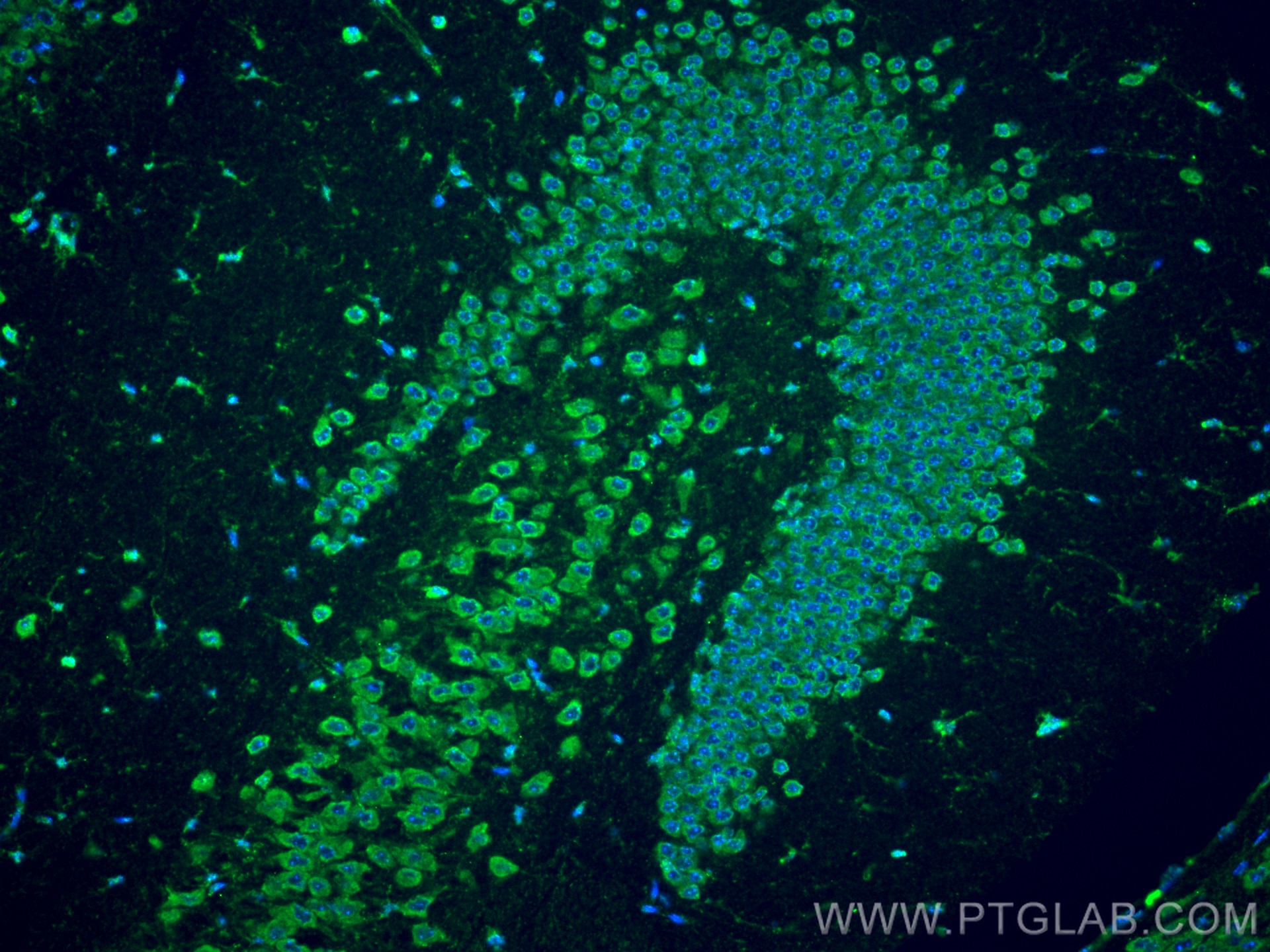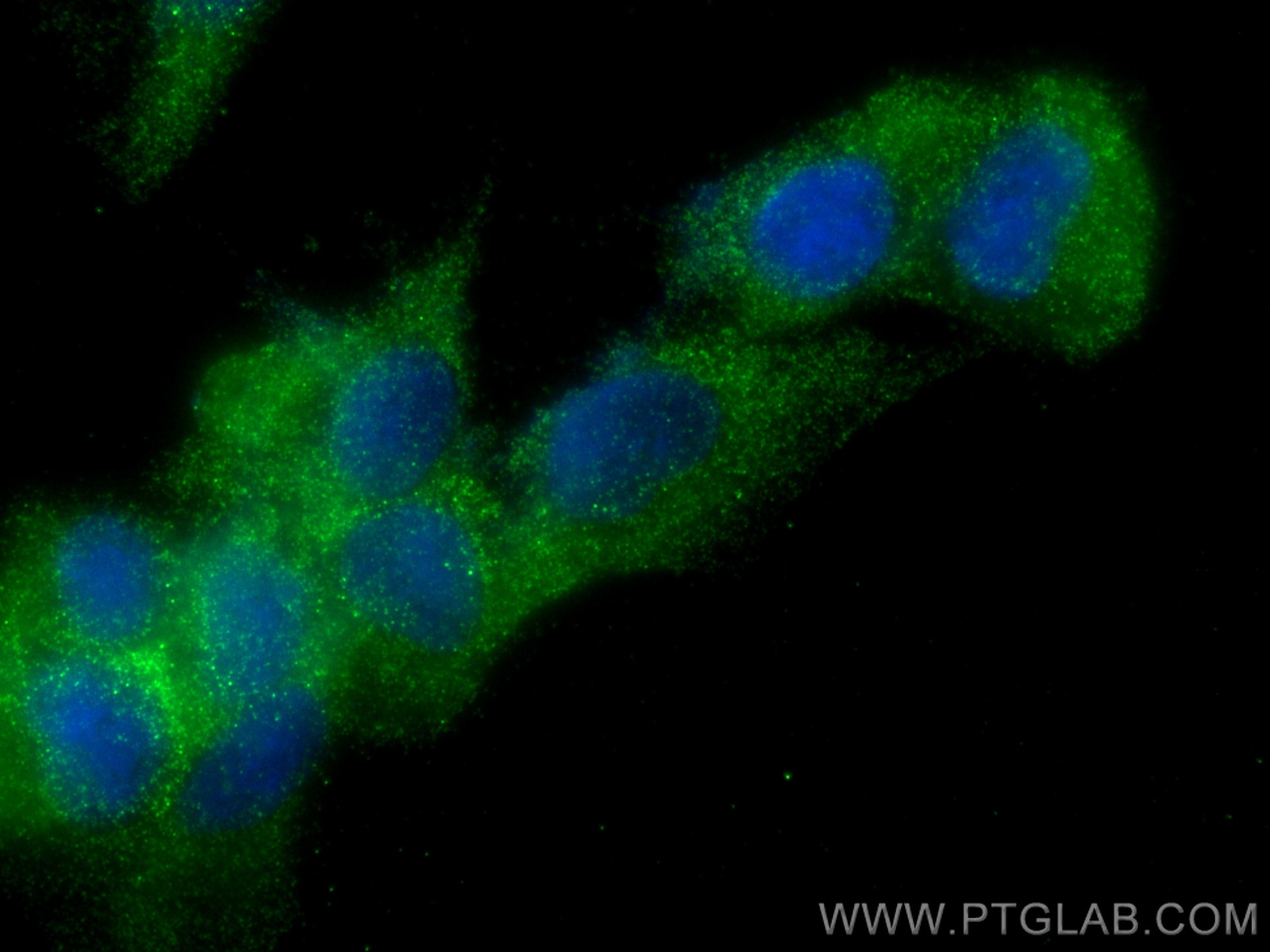Tested Applications
| Positive WB detected in | A549 cells, U-87 MG cells, ROS1728 cells |
| Positive IP detected in | ROS1728 cells |
| Positive IHC detected in | human breast cancer tissue, human lung cancer tissue, human osteosarcoma tissue Note: suggested antigen retrieval with TE buffer pH 9.0; (*) Alternatively, antigen retrieval may be performed with citrate buffer pH 6.0 |
| Positive IF-P detected in | mouse brain tissue |
| Positive IF/ICC detected in | ROS1728 cells |
Recommended dilution
| Application | Dilution |
|---|---|
| Western Blot (WB) | WB : 1:500-1:1000 |
| Immunoprecipitation (IP) | IP : 0.5-4.0 ug for 1.0-3.0 mg of total protein lysate |
| Immunohistochemistry (IHC) | IHC : 1:100-1:400 |
| Immunofluorescence (IF)-P | IF-P : 1:50-1:500 |
| Immunofluorescence (IF)/ICC | IF/ICC : 1:200-1:800 |
| It is recommended that this reagent should be titrated in each testing system to obtain optimal results. | |
| Sample-dependent, Check data in validation data gallery. | |
Published Applications
| KD/KO | See 1 publications below |
| WB | See 6 publications below |
| IHC | See 13 publications below |
| IF | See 15 publications below |
Product Information
11239-1-AP targets Cathepsin K in WB, IHC, IF/ICC, IF-P, IP, ELISA applications and shows reactivity with human, mouse, rat samples.
| Tested Reactivity | human, mouse, rat |
| Cited Reactivity | human, mouse, rat, zebrafish |
| Host / Isotype | Rabbit / IgG |
| Class | Polyclonal |
| Type | Antibody |
| Immunogen | Cathepsin K fusion protein Ag1761 Predict reactive species |
| Full Name | cathepsin K |
| Calculated Molecular Weight | 39 kDa |
| Observed Molecular Weight | 27 kDa, 38~46 kDa |
| GenBank Accession Number | BC016058 |
| Gene Symbol | Cathepsin K |
| Gene ID (NCBI) | 1513 |
| RRID | AB_2245581 |
| Conjugate | Unconjugated |
| Form | Liquid |
| Purification Method | Antigen affinity purification |
| UNIPROT ID | P43235 |
| Storage Buffer | PBS with 0.02% sodium azide and 50% glycerol , pH 7.3 |
| Storage Conditions | Store at -20°C. Stable for one year after shipment. Aliquoting is unnecessary for -20oC storage. 20ul sizes contain 0.1% BSA. |
Background Information
CTSK(cathepsin K), also named CTSO, CTSO2, is a recently identified lysosomal cysteine proteinase. CTSK is synthesized as a proenzyme of 38 kDa and subsequently enters acidic lysosomal compartments, in which the propeptide is cleaved and transformed into an active enzyme and it may influence adipocyte differentiation through modifying extracellular matrix components(PMID:16912123). It is revealed both the 46-kDa cathepsin-K precursor and the 30-kDa mature form in mouse bone extracts (PMID:9811821). The high CTSK protein levels are only detected in primary cultured fibroblasts derived from normal and neoplastic breast tissue, where the 37- and 25-kDa bands to be detected correspond to pro- and mature proteins through western blot (PMID:18765527). The full length protein has a signal peptides with 15 amino acids and a propeptide with 99 amino acids. CTSK may have cross reaction with the other members of cathepsin family and form a complex of 70 kDa with an unidentified subunit(PMID:1930136).
Protocols
| Product Specific Protocols | |
|---|---|
| WB protocol for Cathepsin K antibody 11239-1-AP | Download protocol |
| IHC protocol for Cathepsin K antibody 11239-1-AP | Download protocol |
| IF protocol for Cathepsin K antibody 11239-1-AP | Download protocol |
| IP protocol for Cathepsin K antibody 11239-1-AP | Download protocol |
| Standard Protocols | |
|---|---|
| Click here to view our Standard Protocols |
Publications
| Species | Application | Title |
|---|---|---|
Biomaterials BMP2 immune complexes promote new bone formation by facilitating the direct contact between osteoclasts and osteoblasts. | ||
Dev Cell Gasdermin D maintains bone mass by rewiring the endo-lysosomal pathway of osteoclastic bone resorption | ||
ACS Appl Mater Interfaces Nel-like Molecule Type 1 Combined with Gold Nanoparticles Modulates Macrophage Polarization, Osteoclastogenesis, and Oral Microbiota in Periodontitis | ||
Br J Pharmacol Andrographolide prevents bone loss via targeting ERRalpha-regulated metabolic adaption of osteoclastogenesis. | ||
Arthritis Rheum Osteoarthritic change is delayed in a Ctsk-knockout mouse model of osteoarthritis. |
Reviews
The reviews below have been submitted by verified Proteintech customers who received an incentive for providing their feedback.
FH Isabel (Verified Customer) (07-03-2020) | Antibody worked really well to detect Cathepsin K in protein from mouse osteoclasts. Blot was really clean with no other bands.
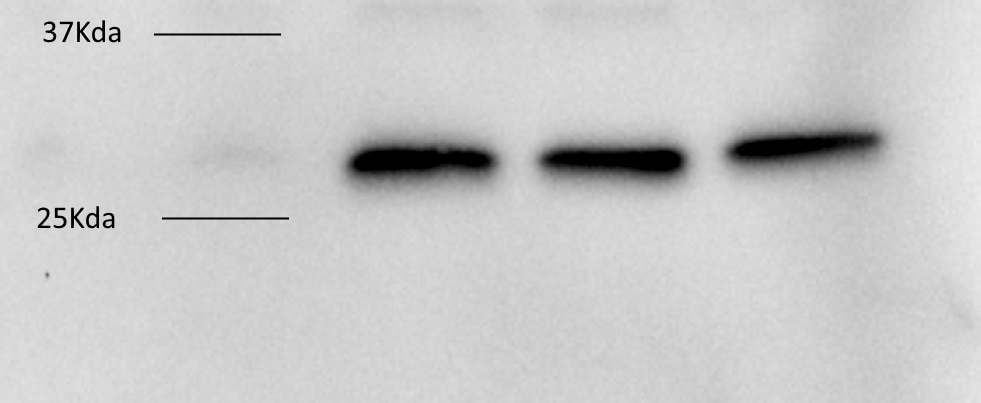 |
FH RICHA (Verified Customer) (10-09-2019) | Good but hard to get the signal
 |
